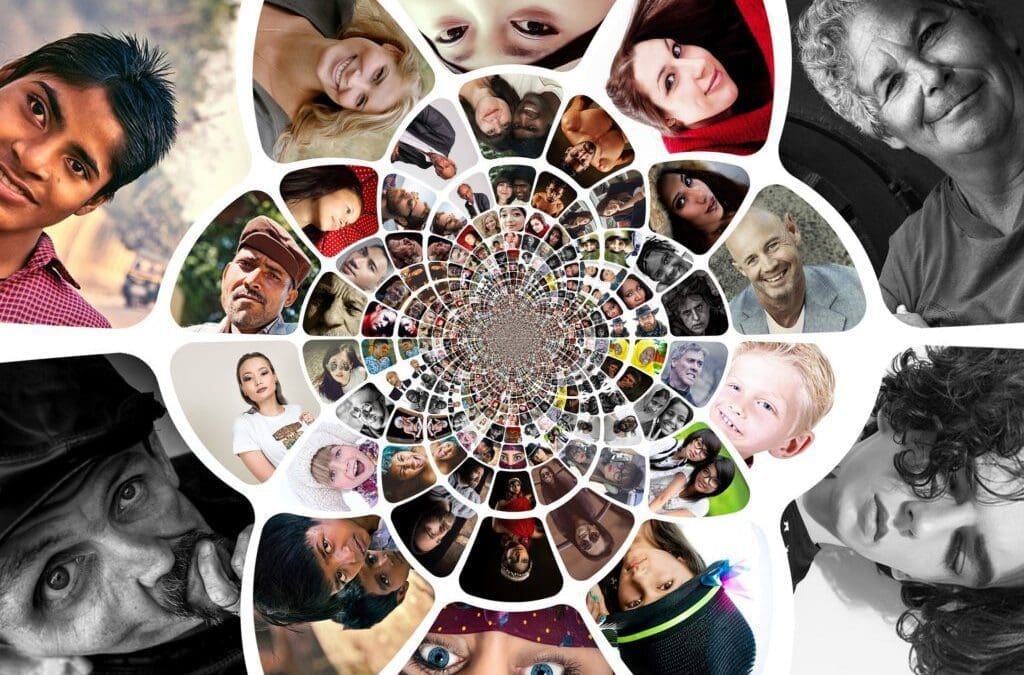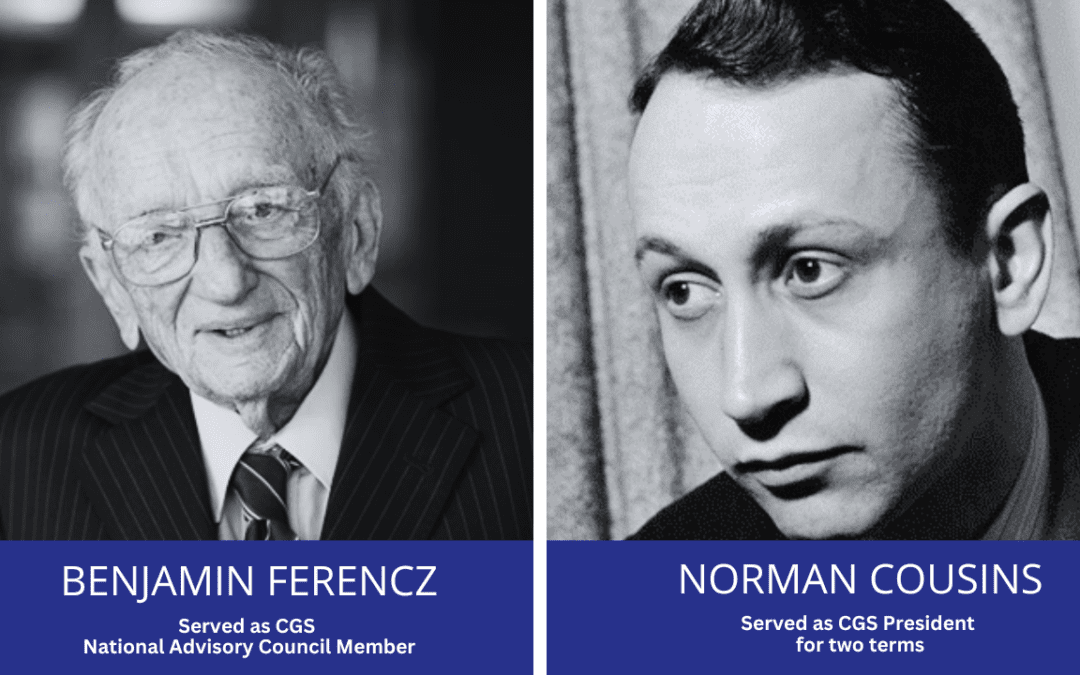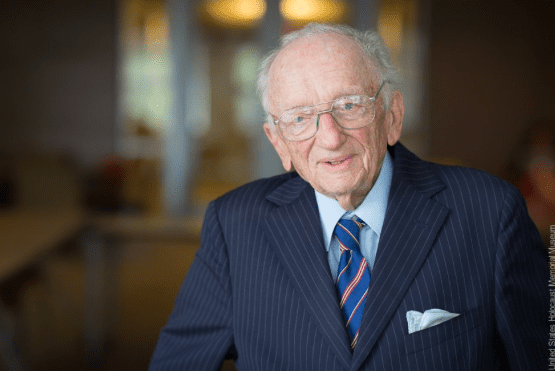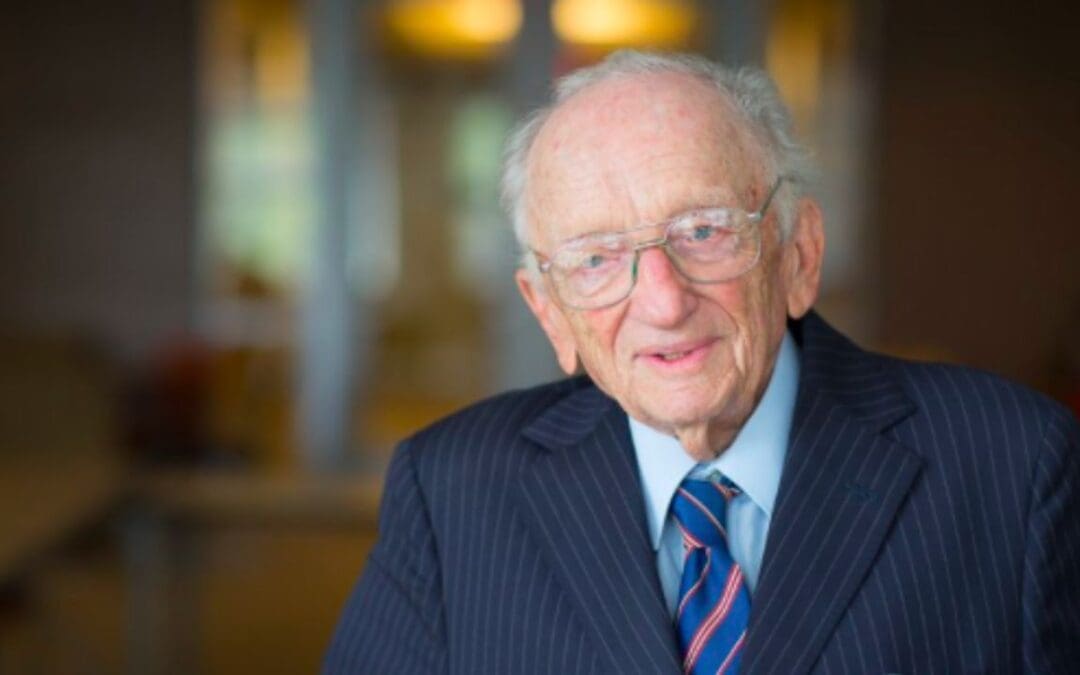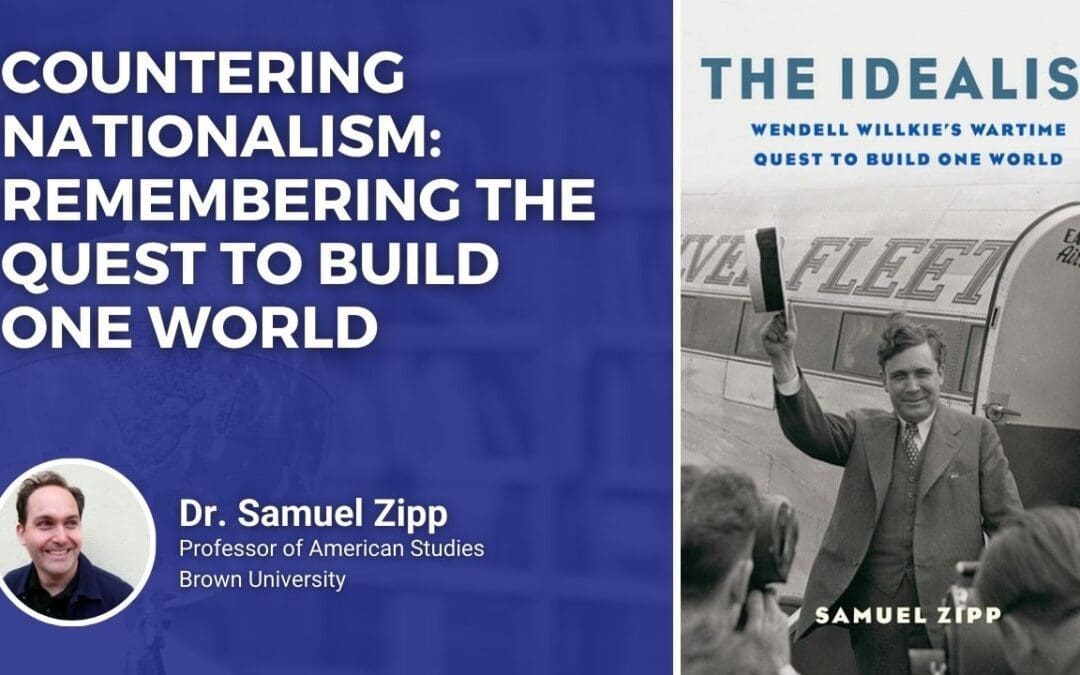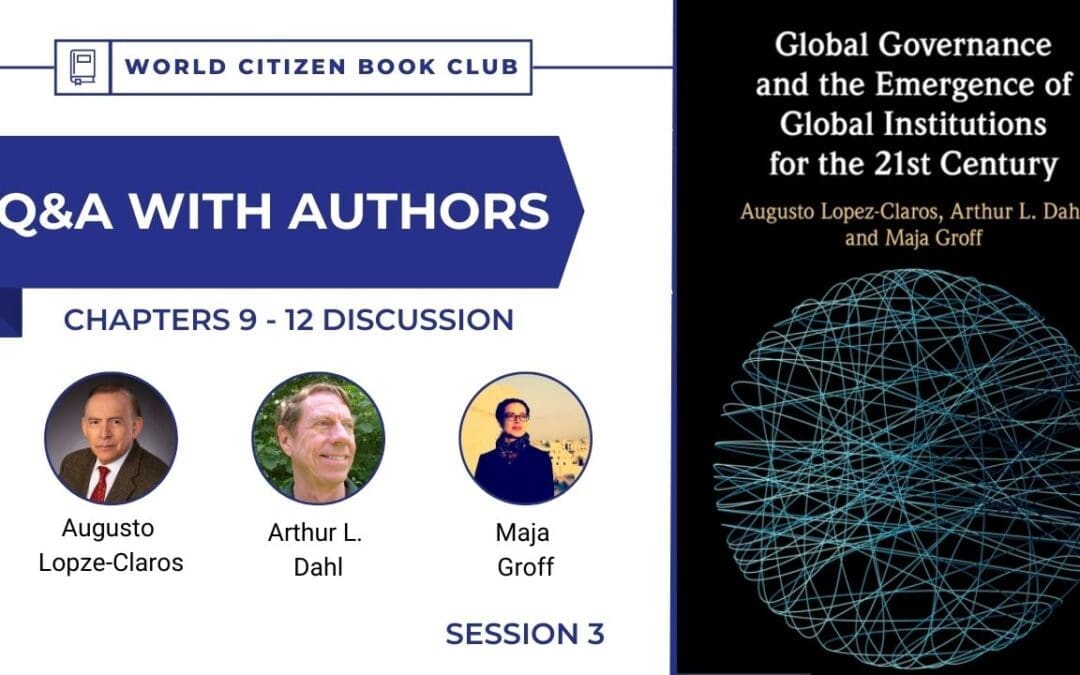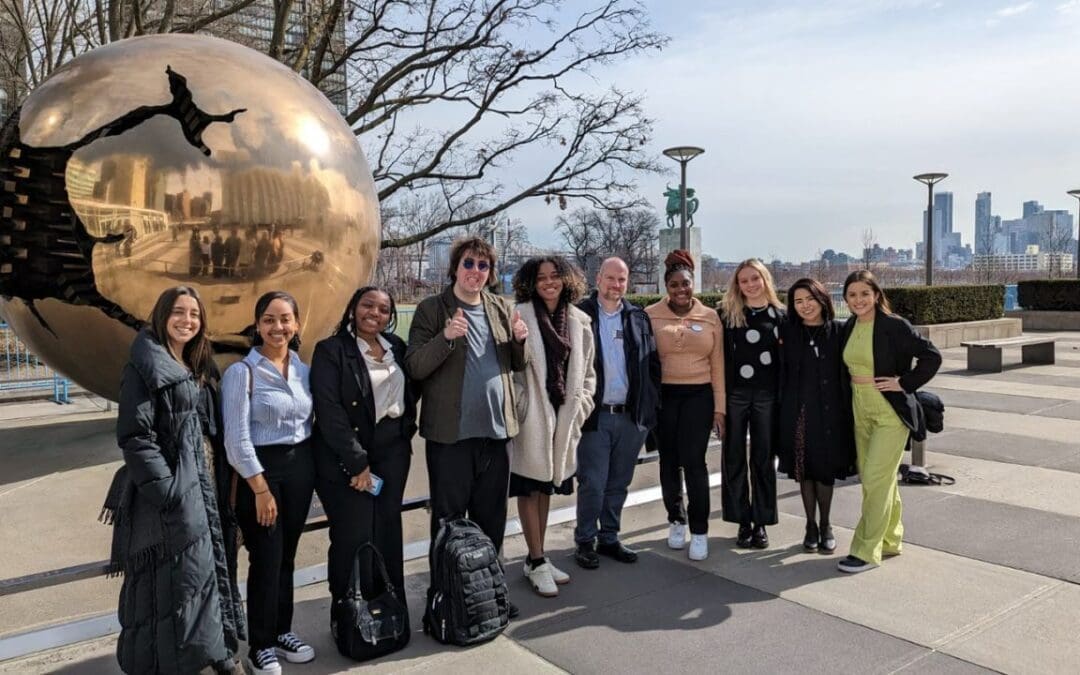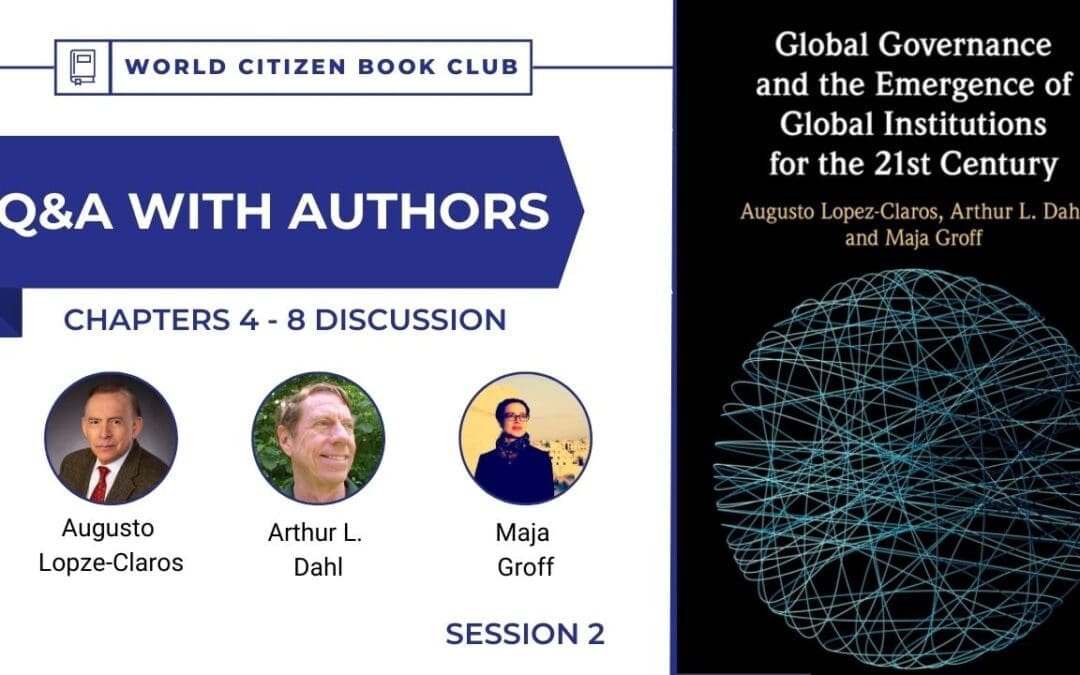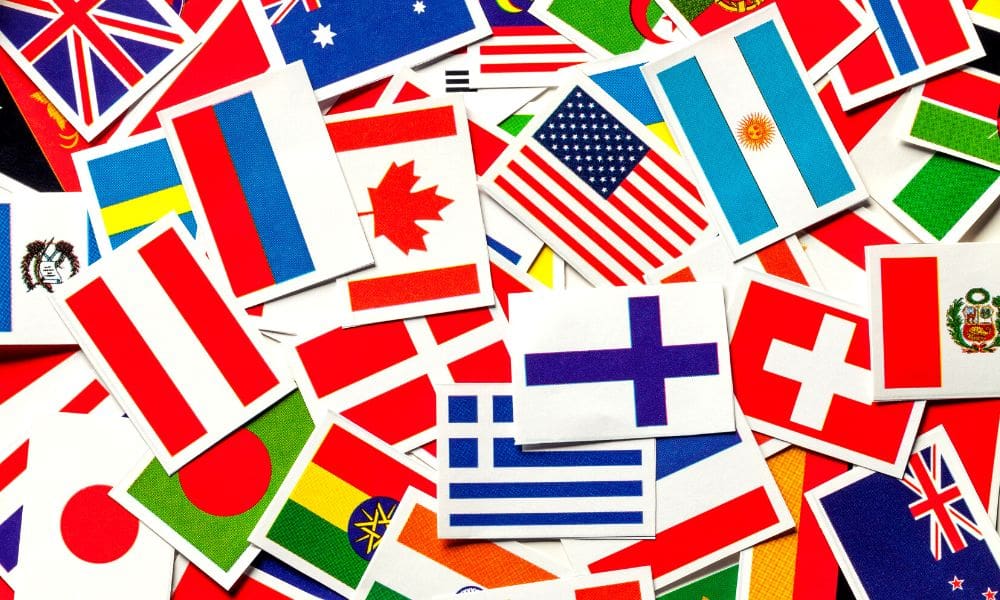
by Lawrence Wittner | Apr 18, 2023 | Global Cooperation
For many years, a portion of the world public has sought to wall itself off from people abroad by hiding behind national borders.
Nationalist Isolation in the United States and Elsewhere
In the United States, this tendency became an important element in American politics. During the 1920s and 1930s, the Republican Party embraced isolationism and spurned the new League of Nations. Indeed, for a time, President Warren G. Harding’s State Department refused to even acknowledge correspondence from the League. Republican leaders also played a key role in the America First Committee, founded in 1940 to oppose U.S. aid to Britain in its lonely resistance to the fascist military onslaught. Admittedly, after the Japanese attack on Pearl Harbor in December 1941, the GOP shifted course, backing U.S. participation in World War II and the development of the United Nations. In the postwar years, however, this internationalist approach gradually dissipated, especially as the Republican Party moved rightward. Increasingly, the GOP portrayed international treaties and foreigners as threats to “the American way of life.”
The descent into xenophobia was particularly evident during the presidency of Donald Trump. Proclaiming an “America First” policy and ridiculing “global citizenship,” he assailed the United Nations, withdrew the United States from the World Health Organization, championed the building of border walls, banned travel to the United States from select countries, and pulled the U.S. government out of international climate and arms control agreements. “You know what I am?” Trump remarked to a campaign crowd in October 2018. “I’m a nationalist. OK? I’m a nationalist.”
Even after his 2020 election defeat, Trump has continued to promote an “America First” policy, while other leading Republicans, ranging from Florida Governor Ron DeSantis to House Speaker Kevin McCarthy, have done much the same. MAGA extremists like Tucker Carson and Marjorie Taylor Greene increasingly set a strident nationalist tone for the current GOP. Nor are they out of line with most of their voters, According to polls, most Republicans oppose their government’s taking international action against climate change, aiding refugees fleeing violence, defending human rights in other countries, and strengthening the United Nations.
Of course, this kind of narrow nationalism has been and remains common in many lands, where notions of national superiority have facilitated imperialism, militarism, disdain for foreigners, and ignorance of the world. Rightwing political movements seem particularly prone to nationalist hysteria; witness, for example, the chauvinism displayed by fascist parties of the past and present. But flag-waving glorification of the nation has certainly not been limited to the Right or, for that matter, to any country.
Problems with the Nationalist Approach
Despite their ubiquity, however, nationalist disrespect and contempt for people of other lands run counter to most of the world’s great ethical and religious teachings, which call for fairness, charity, and even love for others. The oft-cited Golden Rule―“Do unto others as you would have them do unto you”―is not limited by national boundaries. Similarly, “welcoming the stranger,” a direct challenge to xenophobia, has deep resonance in traditional moral preachments. In fact, xenophobia is a form of nationally-based selfishness that undermines the fundamentals of ethical behavior.
Moreover, a nationalist approach is very unrealistic. After all, in today’s world, no single country or group of countries can cope effectively with the severe problems that confront us. These problems include war (and perhaps nuclear war), climate catastrophe, disease pandemics, resource scarcity, widespread poverty, and mass migration. Given advances in modern science and technology, solutions to these problems are feasible. Even so, as these are global problems, it is hard to see how they can be addressed successfully without implementing global solutions. And these solutions require international cooperation.
The Rise of Global Citizenship
Fortunately, as ethical obligations have been reinforced by global realities, many international voluntary organizations have emerged to deal with such issues as war (the International Peace Bureau and International Physicians for the Prevention of Nuclear War), environmental defense (Greenpeace, 350.org, and the World Wildlife Fund), and preservation of human life and health (the International Red Cross and Red Crescent Movement and Doctors without Borders). Other concerns that have led to the development of international voluntary organizations include aid to refugees (the International Rescue Committee), the alleviation of poverty (Oxfam International), and the defense of workers’ rights (the International Trade Union Confederation).
In addition, international governmental institutions, working to address these and other challenges, have developed over the past century. The best known of them is probably the United Nations. But others include the International Court of Justice and the International Criminal Court. Working together, they have helped fashion international law, including the Geneva Conventions and the Universal Declaration of Human Rights.
In an effort to promote further progress along these lines, some organizations, such as the World Federalist Movement, call for strengthening international cooperation by building a united federation of nations. And there is much to be said for this approach. After all, these international organizations, institutions, and agreements point the way forward to a global civilization where nations are not invaded and relentlessly bombed to satisfy the imperial ambitions of an arrogant ruler, where people do not go hungry when there is food enough for all, and where people’s homes and lands are no longer overwhelmed by environmental disasters to safeguard the profits of giant fossil fuel corporations.
As the development of international social movements and institutions has shown us, people around the globe who seek to move beyond the artificial boundaries that have separated them can work together to address their common problems by building an ever more united world. Having wallowed in futile and self-defeating national isolation for centuries, the people of the world can take effective action to transcend their divided past in the interest of a brighter future . . . for all!
Lawrence S. Wittner is Professor of History Emeritus at SUNY/Albany, the author of Confronting the Bomb (Stanford University Press) and other books on international issues, and a board member of the Citizens for Global Solutions Education Fund.
Disclaimer: The views expressed in this blog post do not necessarily reflect the official policy of Citizens for Global Solutions.

by Citizens for Global Solutions | Apr 15, 2023 | Global Justice
The little known story of how American public outrage capitulated German lawmakers to compensate Polish survivors of Ravensbrück
With the passing of Benjamin Ferencz on April 7, humanity lost a tireless advocate for justice, world law, and human rights. Ben was a long-time CGS supporter, served as a National Council Advisor, and a world federalist.
On November 11, 2018, Citizens for Global Solutions honoured Ben with the Norman Cousins Global Governance Award which recognized his substantial contributions to world federation and improving global governance.
The following excerpt is Ben speaking at the awards ceremony about his friendship with Norman Cousins as well as their work ensuring compensation for the Ravensbrück survivors.
Ben’s Reflections on Receiving the Norman Cousins Global Governance Award:
A number of the Polish Catholic girls who were interned in the Ravensbrück Concentration Camp, and there they were subjected to a series of medical experiments by the Nazi troops in order to test out whether various glass in the wounds and sand in the wounds and other horrible experiments–how long will it take to cure them and what it took not to cure them.
And this is the subject of one of the subsequent Nuremberg trials, known as the Medical Case, which was one of the first cases after the trial by the International Military Tribunal against Göring.
Caroline Ferriday who is lady of some means and she had arranged to visit a number of the Polish Catholic girls who were interned in the Ravensbrück Concentration camp and there they were subjected to a series of medical experiments by the Nazi troops in order to test out whether the various glass in the wounds and sand in the wounds and- other other horrible experiments – how long will it take to cure them on what it took to not cure them and this is the subject of one of the subsequent Nuremberg trials, known as the Medical Case, was one of the first cases after the trial by the International Military Tribunal against Göring.
So, she was aware of this and she went to Norman Cousins and said, “Well, you are taking care of this Hiroshima Maidens, can’t you do the same for these Ravensbrück lapins?” Because lapins is French for “rabbits” or “guinea pigs” and were being used as human guinea pigs. And he agreed to try and help her and he set up a small committee. I was the pro bono counsel to that Committee because I negotiated with the German government about compensation for all of the Nazi persecution. And so, she visited me and I said I would try to get the German governments to agree, but it would be difficult because we had a complicated indemnification law. And it had no provision or made for compensate anybody in Poland and the Germans took a very harsh position.
Saying, look, we were at war with this country, they were killing our soldiers there we’re not going to compensate anybody our country with which we were at war. And the Committee took a dim view of that.
I met with the German Ambassador in Washington, and I said, “Look this is an exceptional case.” He said, “I’m sorry this is built with the legislature which we’ve done as much we tend to do.”
Whereupon the Committee arranged with Pan Am to fill up a plane with the ladies that we call the ‘Ladies from Ravensbrück’ and bring them to New York. And there we arranged for a ceremony to take place on the steps of St. Patrick’s Cathedral where they were greeted by the bishop or whoever it was saying, “you know, women of Ravensbrück, look what terrible things the Nazis did to you, and they refuse to compensate you for the lapins!” And so, we got a lot of publicity and the German Ambassador, whom I had pretty good relations, he sent me a copy of the cable that he had sent to Bonn [Germany].
Saying this is not a financial problem, this is a political problem so get them out of here. They’re going to go, we had arranged this visit, all the Senators who had a Polish constituency in the Senate to welcome the girls from Poland saying, oh look how terribly they were treated by the Nazis, and they won’t compensate them for anything, any come with you excuses and so on.
So, we’re going to put high pressure on and the Germans had to capitulate. And I was present in Bonn when the Cabinet called a Special Meeting on this question, whether they could expand their laws. And they all said, “make sure that that Ferencz guy doesn’t get involved in this thing. Anyway, he’s just making it hard until we don’t want anything to do with him.” I said that’s fine! But would you deal with the Red Cross, the International Committee of the Red Cross? And they agreed.
So, I flew to Geneva and set up arrangements whereby the German Government agreed to pay a fixed sum agreement. Norman Cousins was really the leader of the team meetings that took place in his office usually and he was fully involved, and he was writing about it all the time. So, it was largely as a result of his efforts that many people would not have been compensated.
We created whole system and Norman was really the leader of this and our meetings took place in his office, and he was fully involved, and he was writing about it all the time. So, it was largely as a result of his efforts that many people would not have been compensated, did receive compensation for some terrible wounds taken on deliberately by the Nazi regime. So, Norman and I were good friends, and I followed his career. When he was finally ill, and I recognized that he extended his own life expectancy by adopting of philosophy of making jokes and trying to keep up with your humor and everything he did certainly extended his life and he was a great man. I’m very honored to receive any award which bears his name.
Benjamin Ferencz is remembered for being a lead investigator in the Nuremberg Trials where all of the 22 defendants were convicted and a tireless advocate for the International Criminal Court (ICC). Additionally, Ben was also a staunch world federalist and served on CGS’s National Advisory Council for decades and is the author of Planethood, which makes the case for a democratic world government. May his legacy be an inspiration for justice and peace.
Norman Cousins was the editor of the Saturday Review for more than thirty years and had a powerful platform from which to help shape American public debate during the height of the Cold War. Under Cousins’ leadership, the magazine was considered one of the most influential in the literary world. Cousins’ progressive, nonpartisan editorials in the Review earned him the respect of the public and US government officials. Norman was also a world federalist and peace activist and served as CGS’s President twice from 1952-1954 and again from 1976-1990.

by Citizens for Global Solutions | Apr 14, 2023 | Press Release
“By any rational standard what we are setting out to do is quite impossible. But we must do it, we can and we will!”
This is the inspirational message in support of democratic world government that longtime CGS supporter and National Advisory Council member Benjamin Ferencz prepared while drafting the lecture he would give at the Second Global Structures Convocation in February of 1992. The chief prosecutor of the Einsatzgruppen Trial- one of the Nuremberg Trials- at the age of 27, a tireless advocate for the International Criminal Court and a democratic world government, and an exceptional human being, Ben Ferencz had a life that was instructed by a simple yet powerful motto: “Never give up.” It is a fitting guiding principle for a person whose life was dedicated to campaigning for a democratic world federation to safeguard the sanctity of human life, a seemingly impossible yet necessary task that requires a “never give up” attitude that Ben embodied with his whole being.
In 1988, Ben teamed up with personal growth writer Ken Keyes, Jr. to write Planethood, a book directed to the general public that laid out eight practical steps to achieve a democratic world government. In the book, Ferencz and Keyes argue that “We must begin to think in planetary terms if we are to find peace.” Like many other people, we at Citizens for Global Solutions find Ferencz and Keyes’ message to be extremely hopeful since it advocates for a grassroots movement to establish a “United Federation of Nations”; We the People can really do this, provided that we “never give up!” And we are extremely grateful that Ferencz donated an entire print run of his book to CGS! Building off of Planethood, one of the most important, basic ideas Ferencz expressed in his literary works regarding world federalism is the importance of replacing the “rule of force with the rule of law” through the establishment of courts with universal jurisdiction. As Ferencz has asserted, “There can be no peace without justice, no justice without law and no meaningful law without a Court to decide what is just and lawful under any given circumstance.”
Ben’s indefatigable commitment to an International Criminal Court, with full US participation, and a democratic world government- in addition to his active involvement in CGS’ National Advisory Council- made him an obvious choice to receive the 2018 Norman Cousins Global Governance Award. Ben also was honored with the 2022 Congressional Gold Medal, which recognized his dedication to the international rule of law. In Section 2 (Findings) of the bill recognizing Ferencz, the 11th point is particularly notable:
Ben, at age 101, is still active, giving speeches throughout the world about lessons learned during his extraordinary career. He is compelled by the imperative to “replace the rule of force with the rule of law”… He often tells young people to “never give up” because the fight for peace and justice is worth the long struggle ahead.
On January 17th, 1961, President Dwight Eisenhower gave a speech warning the public of the dire, antidemocratic threats posed by the “military industrial complex.” He argued that, “In the councils of government, we must guard against the acquisition of unwarranted influence… by the military-industrial complex. The potential for the disastrous rise of misplaced power exists and will persist.” Thanks to Ben Ferencz’s tireless dedication to a safer, more just world, we have a North Star that can, provided we “never give up,” guide all living beings on planet Earth toward a more sustainable future. In the words of CGS board member Larry David, “Ben Ferencz, we are forever indebted to your service in the cause of peace, justice, and our dream of a federal republic of the world – a true United Federation of Nations!”
About Citizens for Global Solutions
CGS is a non-governmental, non-profit, non-partisan membership-based organization that for more than 75 years has brought together a diverse collective of individuals and organizations with a common goal of a unified world predicated upon peace, human rights, and the rule of law. From championing ratification of the UN Charter upon our establishment in 1947 to supporting creation of the International Criminal Court (ICC) 25 years ago to advocating for global instruments to confront today’s enduring challenges of war and climate degradation, CGS recognizes that true progress is a generational enterprise. We invite like-minded individuals and organizations to join us in this mission.
Contact: Donna Park dpark@globalsolutions.org

by David Oughton | Apr 12, 2023 | Global Justice
Benjamin Ferencz died on April 7, 2023 at the age of 103. He lived a very rewarding and meaningful life. I had the privilege of meeting him several times, most recently when he received a lifetime achievement award from the Law School at Washington University in St. Louis. He also received a lifetime achievement award from Citizens for Global Solutions. He had served as a member of its National Advisory Board. For many years at their events, the St. Louis chapter of CGS handed out many free copies of Ben’s popular book Planethood. This primer for how to outlaw war outlines eight steps for lasting peace and prosperity.
I had the privilege of introducing the documentary film “Prosecuting Evil” at a recent Jewish Film Festival in St. Louis. This film begins with a quote from Aristotle: “At his best, man is the noblest of all animals; separated from law and justice he is the worst.” During his long life, Ben Ferencz saw the best and the worst of humanity. Because of his experiences in the Second World War, Ben explained how “war can make murderers out of otherwise decent people.” His lifelong passion was to free the world of the war system through legal systems. Ben’s mantra was “Law, not war.”
Ben was born in Eastern Europe of Jewish parents. When he was a baby, his family came to the United States and lived in New York City. After learning English as a replacement of his native Yiddish, Ben eventually graduated from City College and then went to Harvard Law School where he studied war crimes. He then joined the U.S. Army during the Second World War. As a war crimes investigator, he visited many concentration camps after they were liberated by the Allies.
At age 27, Ben became the chief prosecutor of one of the subsequent trials at Nuremberg. He prosecuted Nazi leaders like Otto Ohlendorf who were involved in the Einsatzgruppen, the mobile killing squads who rounded up about one million Jews and shot them. The Nazis then sought a cheaper and quicker way to murder millions of innocent people. They created death camps where many Jews were asphyxiated by poison gas. Ben referred to the Nuremberg Trials as the “biggest murder trial in history.”
After prosecuting Nazi leaders, Ben was able to force the German government to take care of Jewish cemeteries in perpetuity. He then came back to the United States and worked as a human rights lawyer. As a professor of international law at Pace University, Ben wrote many books and articles on international criminal law.
Because of his experience as a prosecutor at Nuremberg, Ben was convinced that the world needed a permanent International Criminal Court. He was a champion for the creation of the ICC which came into existence with the Treaty of Rome in 1998 and the ratification by enough national governments in 2002. The ICC can prosecute individuals involved in war crimes, crimes against humanity, genocide, and aggression when national courts are unable or unwilling to prosecute them. Ben saw this as an important deterrent; it sends the message that people, especially national leaders, cannot get away with mass murder. The problem is that only about two-thirds of the national governments are parties to the workings of the ICC. The United States, Russia, and China are not parties because their vetoes in the UN Security Council do not apply in the ICC. It was an op-ed in the New York Times which Ben wrote with Robert McNamara that convinced President Clinton to sign the Treaty of Rome in 2000. But President George W. Bush notified the United Nations in 2002 that the United States would not pursue ratification of this treaty.
Ben believed that universal support for the ICC would be an important step in creating “a more humane and peaceful world order.” For this man who prosecuted Nazi leaders and became one of the world’s foremost experts in international criminal law, law is better than war.

by Citizens for Global Solutions | Apr 10, 2023 | Press Release
Washington, DC–Join Citizens for Global Solutions on April 22 for a special Q&A Global Conversations online event with author, Samuel Zipp to discuss his book, The Idealist: Wendell Willkie’s Wartime Quest to Build One World.
Participants: You and your fellow attendees will have the chance to learn about Countering Nationalism and Remembering the Quest to Build One World. Attend the FREE event and enter a chance to win Samuel Zipp’s book!
April 22 | 12:00PM – 1:30PM
Click here to register for the FREE event!
In August 1942, as the threat of fascism swept the world, a charismatic former Republican presidential contender, Wendell Willkie, took an unprecedented airplane journey around the world to visit battlefronts in Africa, the Middle East, Russia, and China. In One World, the runaway bestseller he published on his return, Willkie challenged Americans to resist the “America first” doctrine and warned of the dangers of “narrow nationalism”. He urged citizens to end colonialism and embrace, “equality of opportunity for every race and every nation”.
Zipp argues that Willkie’s “warnings about the perils of racially charged ‘narrow nationalism’ have never been more indispensable. As the United States reaches the end of its long turn as a great global power, the quandaries of American exceptionalism he faced remain ours today, and his example may yet offer us undiscovered resources for living in a ‘one world’ he heralded more than three-quarters of a century ago.”
“The term Willkie helped to put into common circulation -’one world’ –would become shorthand for the disruptive charge of worldly connection set off by the war. Over the years Willkie’s name would fade away but ‘one world’ would be adopted by world government advocates, anti-imperialists, environmentalists, and even corporate marketers to signify the promise of times in which global shrinkage offered new contracts and new ideas to offset the dangers of war, xenophobia and racism.”
Samuel Zipp is a cultural and urban historian at Brown University. He has written for the New York Times, the Washington Post, n+1, The Baffler, and The Nation and is the author of Manhattan Projects: The Rise and Fall of Urban Renewal Cold War New York. He also coedited a collection of the writings of Jane Jacobs.
“As a resident of Minnesota, home of a key founder of the UN, Governor Stassen, I have been a long-time devotee of the writings and speeches of Wendell Willkie. This book finally puts this internationally important leader into a truly global context.” Mark Ritchie, National Advisory Committee for Citizens For Global Solutions, former President of Global Minnesota and former Minnesota Secretary of State.
About Citizens for Global Solutions
CGS is a non-governmental, non-profit, non-partisan membership-based organization that for more than 75 years has brought together a diverse collective of individuals and organizations with a common goal of a unified world predicated upon peace, human rights, and the rule of law. From championing ratification of the UN Charter upon our establishment in 1947 to supporting creation of the International Criminal Court (ICC) 25 years ago to advocating for global instruments to confront today’s enduring challenges of war and climate degradation, CGS recognizes that true progress is a generational enterprise. We invite like-minded individuals and organizations to join us in this mission.
Contact: Donna Park dpark@globalsolutions.org

by Citizens for Global Solutions | Apr 8, 2023 | Past Event
Session 3 of the book, Global Governance and the Emergence of Global Institutions for the 21st Century, with all three authors, Augusto Lopez-Claros, Arthur Dahl, and Maja Groff. Our focus will be on the second half of Part 2 discussing reforming the central institutions of the UN. Those chapters present ideas regarding disarmament, international law, human rights, and UN funding.

by Marina Jiménez Melgosa | Mar 30, 2023 | Global Cooperation, United Nations
Being invited to the first Global Future Forum in New York City from March 20-22 was something I never imagined when I arrived in the United States seven months ago. My name is Marina Jiménez, and I am a fourth-year Law and Political student from Universidad Carlos III de Madrid, Spain. Last September, I came to the United States to study for a year at Northeastern University (Boston) and, I was given an opportunity to be sponsored by Citizens for Global Solutions to not just to be part of the first Global Future Forum but to present my research paper, “Open Door opportunities that leave many young people on the doorstep” about the exploitative unpaid internships in the United Nations (UN) at the Youth Pavilion..
But first things first. What was the Global Futures Forum? The Global Futures Forum (GFF) was a two-day event celebrated in New York to conclude several months of work on the “People’s Pact for the Future”, a document that encapsulates several proposals made by civil society about the UN’s future and the reforms that must be made, as an attempt to not only be heard but be presented at the Summit of the Future in 2024. During the previous weeks, Coalition For the UN We Need (C4UN) and the Stimson Center– the coalition that made it all possible; coordinated different E-consultations related to seven tracks: Peace and Security, Human Rights and Participation, UN and Global Governance and Innovation, Global Economic and Financial Architecture, Environmental Governance, Development and Digital Compact. By doing so, people all around the world, all ages and all backgrounds got the chance to bring to the table their concerns and suggestions for a better future. Undoubtedly, GFF represents a significant milestone in the way civil society supports intergovernmental processes. Empowering civil society in international decision-making is the first step towards a stronger, more networked, and inclusive multilateral UN system.
To this effect and to ensure GFF was inclusive itself, it included an entirely youth-led and youth-focused forum, promoting the key role of youth in the monitoring, review and the implementation of Our Common Agenda and the achievement of the Sustainable Development Goals (SDGs). Needless to say that youth representation is a critical stakeholder that is almost never invited to the negotiating table, so being invited and having a voice is an important part of civil society has been an important move. While historically, the lack of young people in high decision-making processes is common, young have the power and full knowledge of our concerns and ambitions, and we will no longer sit on the sidelines. We demand to be part of the conversation and the solutions that concern our futures moving forward. Listening to the voice of youth is a vital part of understanding our society as a whole.
Youth have been undervalued and many in power tend to think that we are “too young and inexperienced” to be a relevant player on the field. But we are not. We are nearly half of the world’s population, and we are more educated than ever. We do not want to be just consulted. We are tired of being asked to share our opinions and solutions without seeing any real change. We want to see our proposals being taken seriously, to the same extent as those of the rest of the involved stakeholders. We want to have a say in our future. We want to get on Board.
That is why I am pleased that the “People’s Pact for the Future” that we drafted will reach the hands of the UN Secretary-General, António Guterres, and the negotiating parties at the Summit for the Future 2024. It is the most useful way to get our claims to where the decisions that affect our day-to-day lives are made. While not every recommendation will materialize from the conference, we must continue to raise our voices at all levels of power, what we experienced could be a turning point in the way the world thinks about and treats youth. It remains to be seen whether they seize the opportunity or miss the boat again.

by Vanita Singh | Mar 22, 2023 | Human Rights
Domestic violence is the most common form of violence against women and is reported globally to be experienced by one out of every three women. Women in low- to middle-income countries, including India, are disproportionately affected, owing to the predominant patriarchal culture in these countries. According to recent data from the National Family Health Survey (NFHS), close to 30% of Indian women have experienced some form of violence, whether physical, sexual, or emotional.
To combat this epidemic of violence, studies in this domain recommend various women’s empowerment initiatives, such as higher education, female labor force participation, and pay parity, among others. However, a recent study from India reports that lower levels of education, rural residence, lower family income, and higher earnings by women correlate with a higher incidence of physical abuse. The authors of one study (Singh & Babbar, 2022) argue that men in Indian society do not take kindly to their wives’ earning more money than they do. This prevalent attitude also correlates with Relative Resource Theory, which holds that a man is likely to be more abusive when he feels that his dominance is being challenged by a woman who earns more money than he does. In a patriarchal society the man is supposed to be the sole breadwinner and he controls his family through resource provision; if he fails to do so, he is mocked by the community. If a man lacks the resources to fulfill this role, he resorts to aggression and violence as a tool to control his family, especially his wife. Patriarchy is so deeply rooted in this socio-cultural context that any policy initiatives aiming to empower women are bound to fail, as women should not be seen as breadwinners. Several other studies in this same cultural context report the identical negative relationship between women’s economic empowerment and their risk of being abused. Incidences of domestic violence has increasingly been reported in high-income families as well.
This social prejudice thus raises the critical need for future research to disentangle this relationship. Among the sociological theories which explain domestic violence, the most popular is resource theory which postulates that domestic violence is more common among lower socio-economic groups due to lack of resources. However, the incidence of domestic violence has increasingly been reported in high-income families as well. A quick survey of the literature in this domain suggests that, except for a few, the existing studies do not explain the link between empowerment and the risk of abuse.
Women’s Role in Patriarchy
Patriarchy has been consistently reported to be the main cause of the violent victimization of women; however, the acceptance by women themselves of patriarchal norms tends to be neglected as a factor predicting violence against women. Research suggests that women who accept patriarchal norms are more likely to be physically abused by their husbands. According to data from NFHS-4 (2015–16), more women (25%) than men (15%) think that it is justified for a husband to beat his wife if she goes out without telling him, argues with him or neglects their children. Is this finding not shocking, given the discourse of gender equality so widespread in our society? Why would women themselves accept a subordinate position—the patriarchal norm—in an intimate relationship when she has the right to equality.
Patriarchy is the belief system which holds that men are justified in controlling women and have the right to exercise such control. The subjugation of women in and of itself is not the central theme in patriarchy but patriarchal culture is deeply misogynistic. In such a culture, women are seen as less capable, less trustworthy. Violence against women is justified by the choices and natures of individual men and women. Patriarchy is thus a social system and not a conscious conspiracy against women by men. Indeed, it is not always conscious and men too are victims, since in a patriarchal society men are supposed to be strong, to hide their emotions, to support their families through their work, etc., making men vulnerable to many mental health issues.
Women are often considered to be the principal victims of patriarchy, but in reality, they themselves are often enforcers of patriarchal norms. Patriarchy is considered to be the source of order in the family and many family members, including young boys and girls, are conditioned to believe that any failure to maintain this order may jeopardize the well-being of the whole family. Thus, the system continues to be passed on from generation to generation and women blindly carry this burden in the name of maintaining the harmony and dignity of the family.
Many tend to criticize men for promoting patriarchal norms, but children learn these cultural norms from their parents. Thus, it is “normal” for children to grow up thinking that male authority is the norm and that any deviation would bring disorder and disharmony. Thus, the education of women, especially the older generation, is needed to break this cycle. As per NFHS-4 data, it is women’s own acceptance of the patriarchal norms—for example, that wife-beating is justified—that is the most significant predictor of her own risk of abuse.
In my own ongoing research into the factors affecting women’s acceptance of patriarchal norms and the role of education, I found that, above and beyond other socio-economic factors, the media—specifically watching television—play a major role in shaping patriarchal norms among Indian women in the age group of 15 to 49 years. As per our data analysis in NFHS-4 (the domestic violence module) women who read newspapers daily are less likely to accept regressive gender norms, while women who watch television daily are more likely to accept patriarchal norms. This finding perhaps mirrors the arguments by feminists against TV soaps which tend to normalize patriarchy and male dominance and have the highest TRP (target rating points, the metric used by marketing agencies to measure the highest number of viewers of a given television program).
Gendered Content: The Role of Mass Media
In popular daily soaps broadcast on television, it is often seen that the woman who is submissive, who cares for everyone, and who gives preference to family rather than work, is considered “perfect” and is portrayed as a desirable “wife.” The most common theme among highly rated daily soaps is that of two women fighting to get the attention of a man. Lead actresses portray “superwoman”, who smoothly manages the household, the office, the children, her in-laws, even her husband’s business. Obviously, such content normalizes prevailing gender roles and the profound inequalities in the society.
The significance of the mass media in perpetuating patriarchal norms among women has serious implications for the content of daily soaps. There is no doubt that education has the potential to promote gender equality in society and that the media have the potential to play a crucial rule in reinforcing more progressive social and cultural norms. However, the question remains to be explored whether daily soaps are designed to serve the real needs of their consumers or whether they primarily promote regressive gendered norms.
The relationship between women’s empowerment initiatives and the risk of physical abuse is not linear. Unless and until there is an acceptance of women’s empowerment in a patriarchal society, these initiatives may not translate into a lower incidence of violence against women. Further research is needed to understand the factors predicting women’s acceptance of patriarchal norms, since research shows clearly that it remains a significant predictor of domestic violence against women.

by Citizens for Global Solutions | Mar 11, 2023 | Past Event
Our second session with all three authors, Augusto Lopez-Claros, Arthur Dahl, and Maja Groff, focuses on Part 2: Reforming the Central Institutions of the UN (Chapters 4-8, pages 81-180). They discuss the authors’ proposals to reform the General Assembly and to establish a World Parliamentary Assembly, Advisory Mechanisms, a UN Executive Council, and an International Peace Force.

by Marta Simoncini | Mar 7, 2023 | World Citizen
In 2019, 10 entrepreneurial families from Fiji, France, Germany, Italy, Kenya, Portugal, Romania, and the Swedish Saami Youth Association found common cause when their businesses – largely in agriculture and tourism – were affected by climate change disasters. With the support of scientists and non-governmental organizations, they brought a case to the European Union Court of Justice in which they demanded more commitments from European institutions in reducing greenhouse gas emissions. This group, the People’s Climate Case, became one of the largest global actions related to climate change. Despite its strategic importance, the case ended with the Court of justice declaring on appeal that it was inadmissible because the plaintiffs were not eligible for direct access to the court.
In an increasingly globalized world, many people have acquired multiple legal identities that are formed “beyond the state.” These individuals have gained a form of administrative citizenship of the world – not a passport that is derived from belonging to a national community but that is the fruit of legal globalization. More cases like these will pose new legal challenges.
The 1998 case brought to the World Trade Organization (WTO) by India, Malaysia, Pakistan and Thailand on shrimp fishing is another example. The fisherman’s activities were severely affected by the U.S. embargo on imports of shrimp caught using methods dangerous to sea turtles. The U.S. embargo aimed to protect endangered sea turtles from becoming trapped in certain types of fishing nets. To protect fishermen and traditional fisheries, Asian states said the embargo had violated international trade rules. While the WTO recognized the legitimacy of restrictive measures to protect the environment, it found the U.S. measure unlawful because it was adopted in the absence of discussion with the states concerned and, thus, in violation of the principles of due process.
Although different, these stories demonstrate how citizens are impacted by decisions made by global or supranational authorities. They also highlight how the exclusive condition of citizenship is no longer just realized at the state level. The interdependence resulting from economic globalization is governed through orders that are formed across national borders.
Although states remain central actors in international society, different forms of sovereignty are emerging in what Sabino Cassese has called a global public arena, in which public and private actors participate in different ways in the creation and implementation of norms.
Recognizing global rights and obligations promises a cosmopolitan ideal of universal rights outside the nation-state framework, but which proceeds from the inalienable contents of national citizenship – such as the right to vote and the duty to pay taxes. In a globalized world, this trend has arisen from conflict mediation outcomes between global actors. There are three main interpreters of these conflicts: the courts; administrative bodies; and political institutions. It is useful to briefly highlight different aspects of their activities to better understand the nature of the current processes.
Global Citizenship and Global Justice: The Role of the Courts
Courts play a key role in the process of asserting rights, but do not always succeed in meeting the demand for global justice.
Going back to the People’s Climate Case, the discrepancy between the demand for justice and European procedural constraints generated an obvious and painful paradox: the more generalized the prejudicial effects of the European Union act were, the more access to the courts was limited. In the words of the entrepreneurs involved in the case, “the more serious the harm and the higher the number of victims, the less judicial protection is guaranteed.”
The legal definition of who and under what conditions those persons can access the courts creates a bottleneck in the quest for justice. What happens, then, to all those situations that are not jurisdictionally protectable, yet embody interests of global significance? When the courts are not equipped to meet demands for justice, who responds to these demands in a global setting that does not have an aggregate political system?
Global Citizenship and Soft Law: The Role of Administrative Bodies
Public administrations are another crucial interlocutor in conflict mediation. Through informal cooperation between jurisdictions – and setting up standards, guidelines, and best practices – a so-called ‘soft law’ emerges, although without binding legal force. The guidelines of the European Securities and Financial Instruments and Markets Authority are one example. In theory, they ensure that advice on investment products is appropriate to the risk profile of clients. National authorities and firms can only deviate from these guidelines by justifying their dissent. In practice, not conforming to the guidelines inevitably means exposing oneself to an eventual international process of ‘naming and shaming.’
‘Soft law’ thus functions as a kind of glue. While not legally binding, it can become so in practice. But in the face of non-traditional, coercive techniques, how can the certainty of individual rights and obligations be ensured? Or how can global citizens recognize and defend themselves when administrations abuse their powers or act in violation of the law?
The quest for soft law legitimacy comes through sharing rules of conduct. Furthermore, a bottom-up process and transparency promotes consensus. But who influences these decision-making processes and who is represented? Selecting globally relevant interests is not a neutral, or just a legal, process. It is also a social and political process of discernment and mediation between diverse interests.
Global Citizenship and the Nation State: The Role of Political Institutions
Finally, politics plays a central role in mediating conflicts. Gaps between multiple legal identities create tensions between those benefitting from taking a global or regional perspective and those who hold conflicting rights and interests protected by national citizenship. Policy can either help to mitigate, or exacerbate, these conflicts. National leaders have exploited these contradictions to construct ‘us vs. them’ identities.
In the last decade these tensions strongly characterized European citizenship. The ideal of a cultural European identity has, for example, been challenged by the problems that have emerged when people who are not actively working – such as students, the unemployed, and retirees – request to live in another European country under conditions of non-discrimination compared to nationals. The latter wish to limit the ‘free riding’ phenomenon of access to public resources, at least if those moving are not actively contributing to the economic life of the host country.
The European Court of Justice, at first a proponent of European citizenship as the “fundamental status of citizens of member states,” has since aimed to remove the risks of this ‘welfare tourism.’ However, this development undermines the right to migrate to realize a better future and European citizenship has lost much of its potential in promoting social mobility.
National leaders have exploited these contradictions to construct ‘us vs. them’ identities.
The reduction of European immigration was former U.K. Prime Minister David Cameron’s rationale for the renegotiation of the British participation in the European Union as well as central to the referendum campaign in favour of leaving it.
Conclusion
A more useful approach may be to look beyond political propaganda to the existence of multiple legal identities. How can such identities be reconciled so that uneven norms do not contribute to dramatically exacerbating latent social conflicts? The answers may come from a more cosmopolitan approach based on the principles of tolerance and dialogue.
There are many knots to unravel to make the globalized world a space for exploring multiple identities. Our future depends on understanding these challenges in their complexity and seeking adequate solutions.
